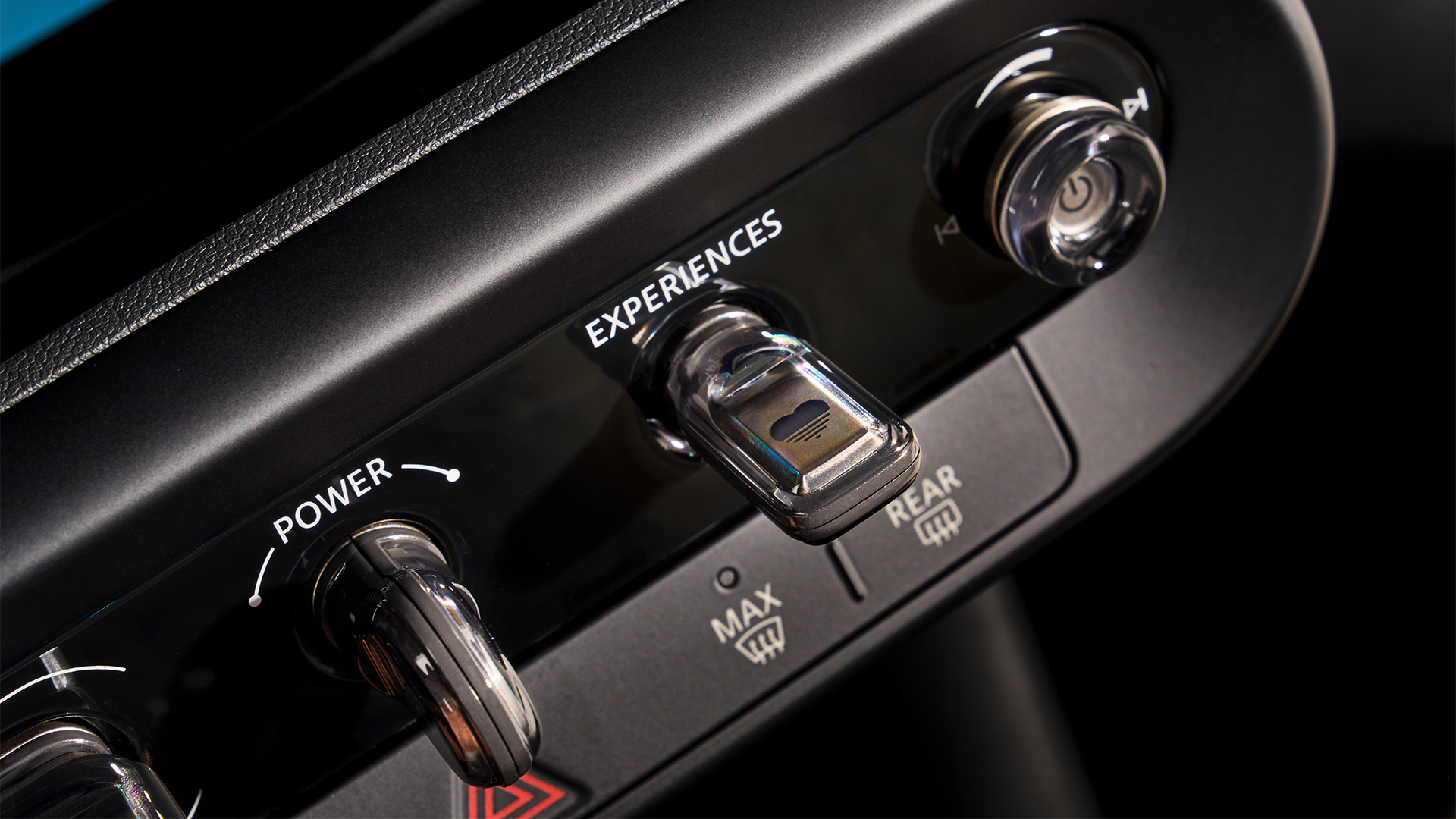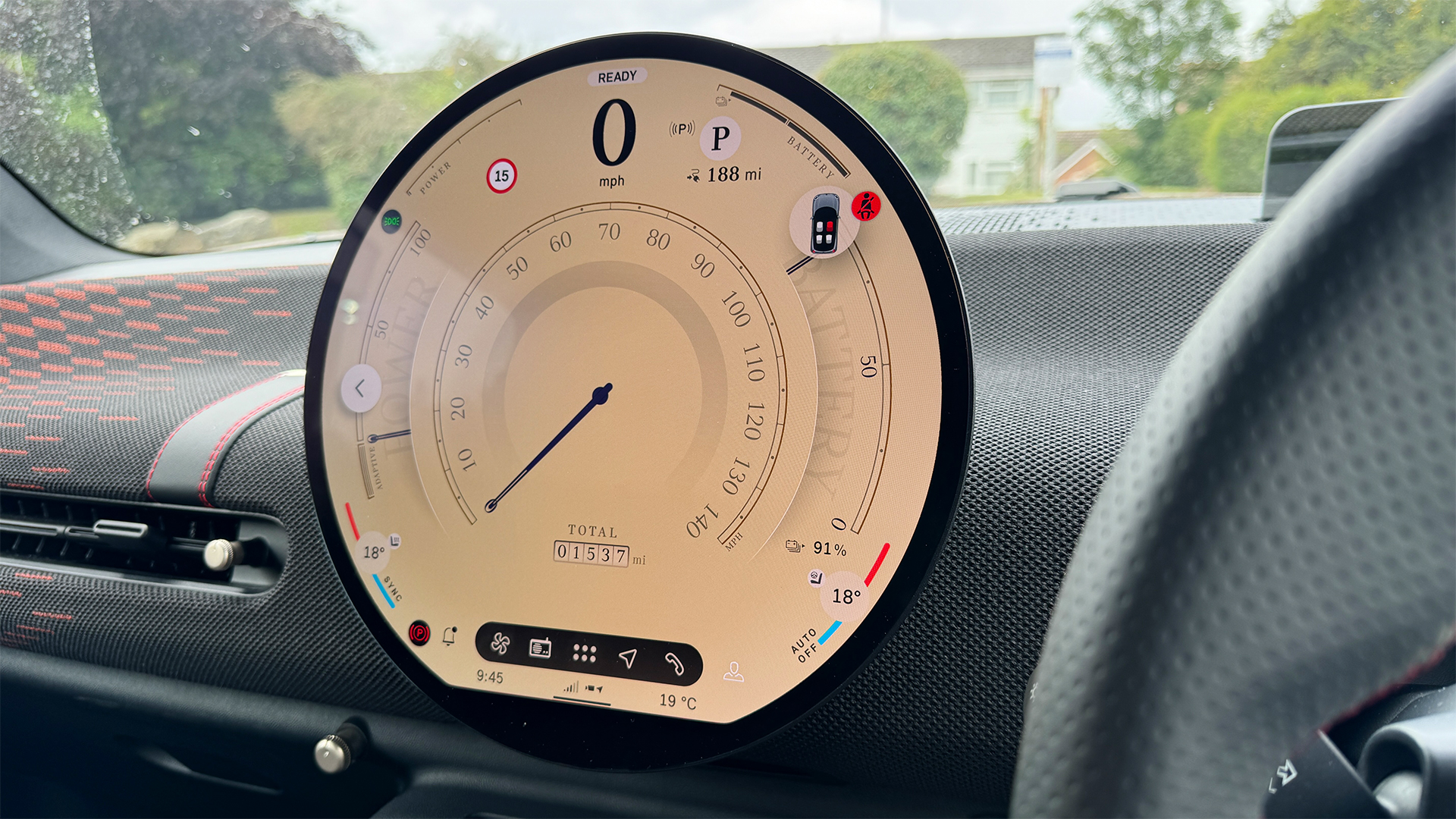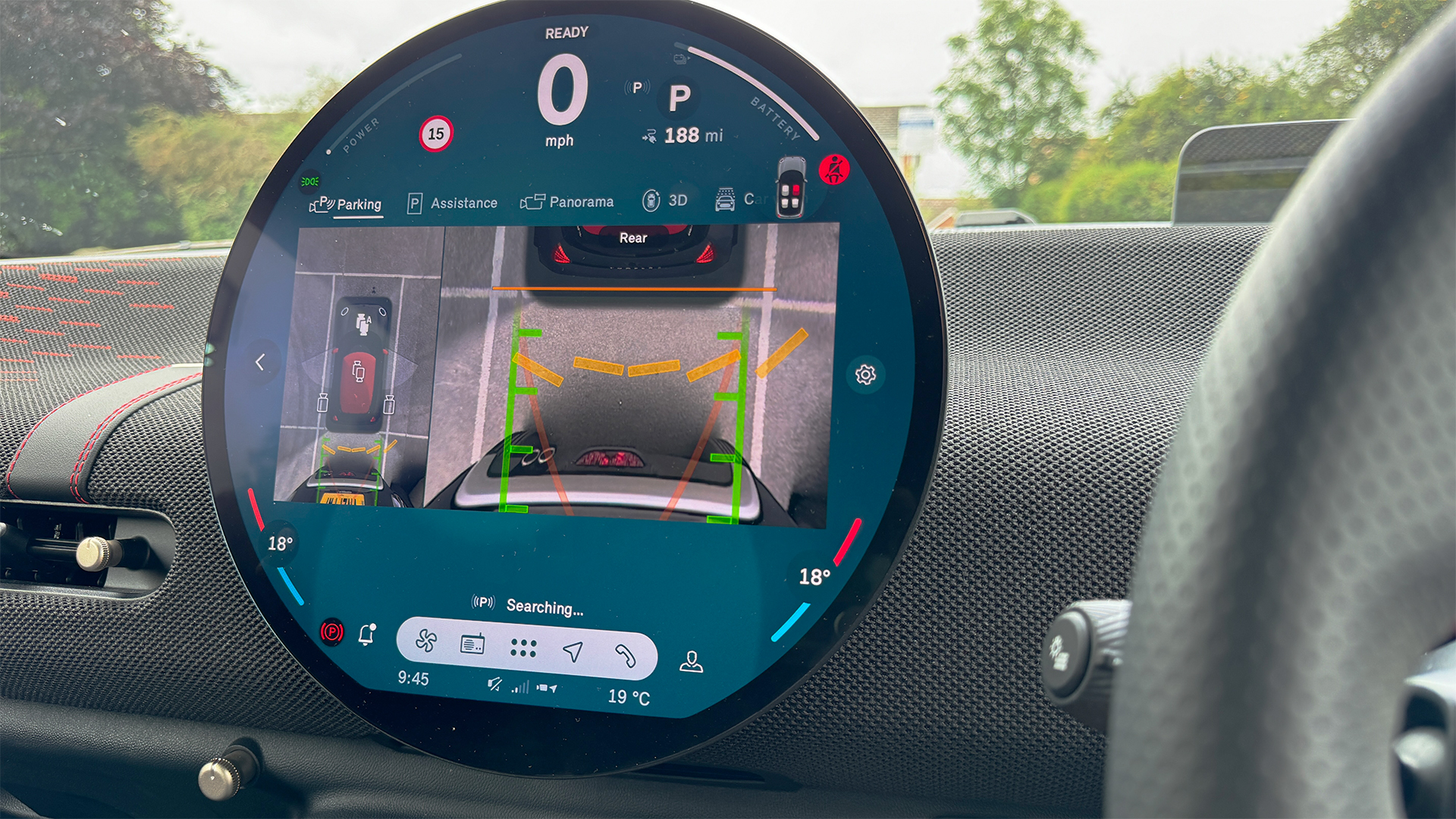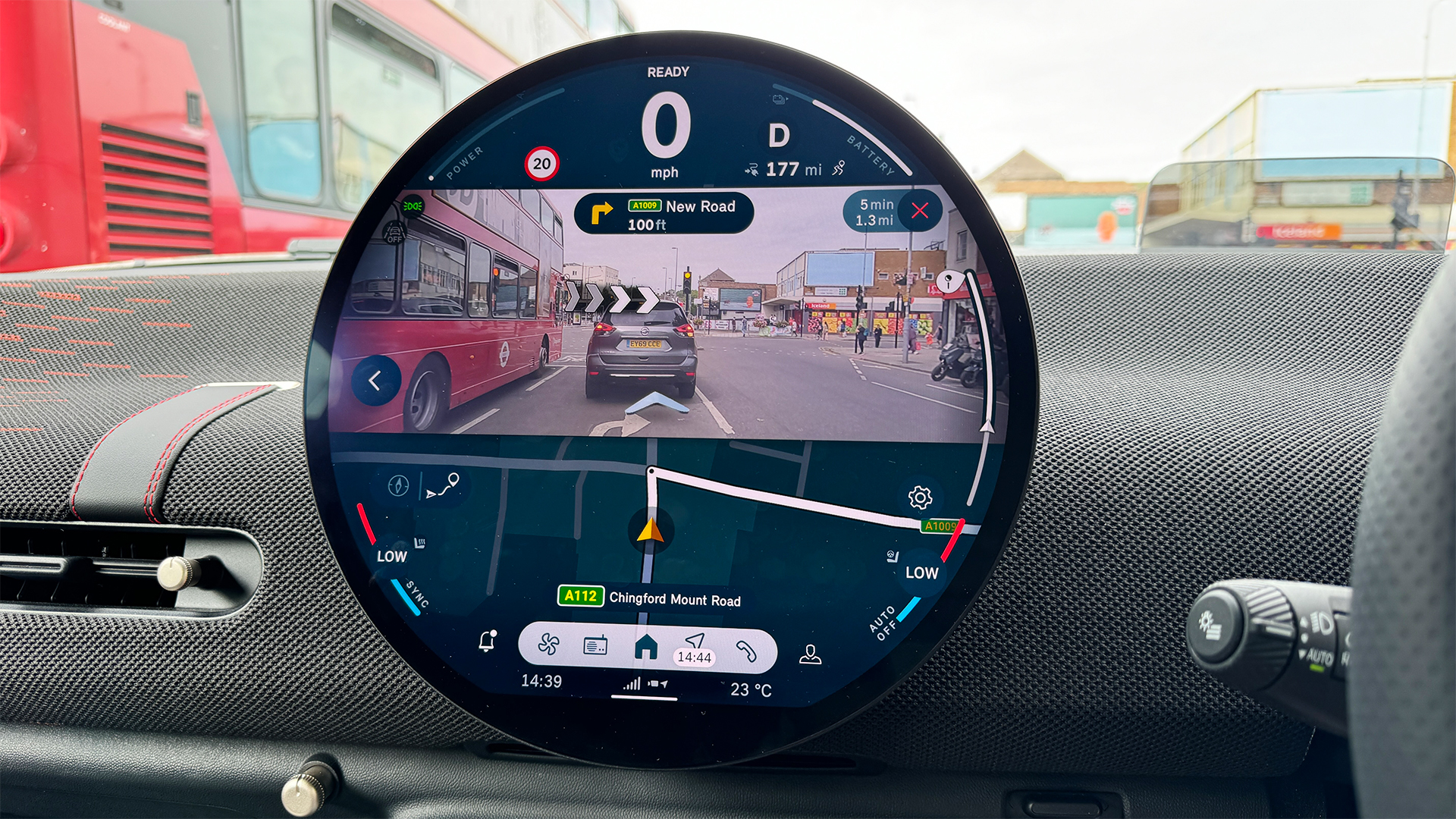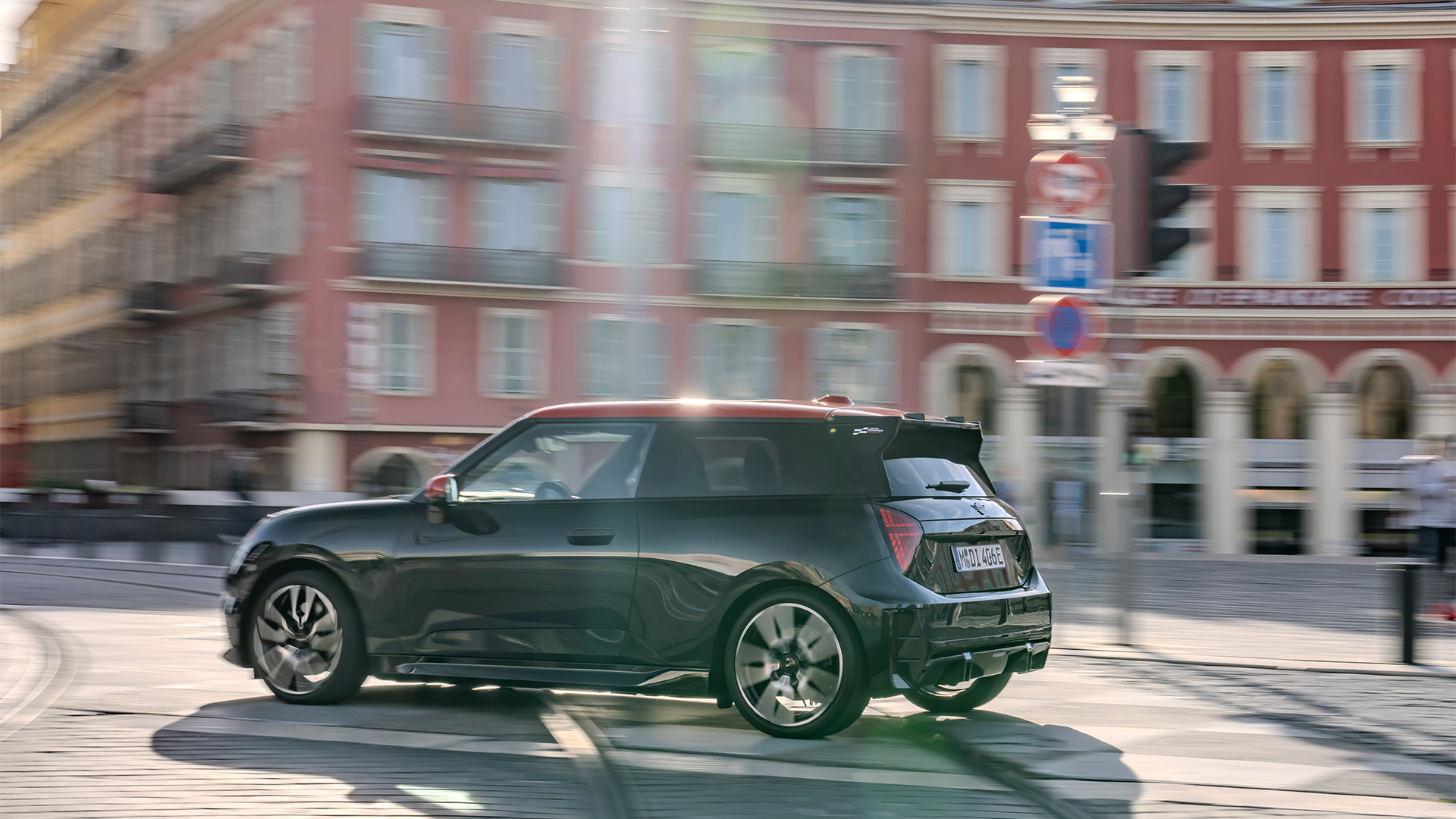I’m pretty sure the BMW Group won’t be too upset if I say that the first-generation Mini Electric was fundamentally flawed.
The 32.6kWh battery pack was tiny, the 144-mile range often unachievable, and the charging times were painfully slow. It looked great, drove well enough but proved too expensive and too impractical for folk to realistically give up their petrol or diesel models.
Thankfully, Mini has hit back with an all-new electric version that, alongside a far more useable and accurate max range of 250 miles, plus a 95 kW top charging speed, boasts a thoroughly revised interior. It also, as I discovered during a day with the charming EV, has a particularly interesting infotainment system.
Nestled among soft, fashionable fabrics, brushed gold buckles and lozenge-shaped Harman Kardon speaker covers sits the latest, circular, high-res OLED touchscreen that takes pride of place in the centre of the dash.
It’s a neat nod to the original, 1959 Alec Issigonis Mini, which has always featured a massive circular instrument cluster and array of toggle switches beneath it.
Granted, this display is for the digital age, but time spent with the car and the infotainment system revealed that opting for software over hardware doesn’t necessarily rob a vehicle of its character.
Mini Interaction Unit
Table of Contents
Yep, it’s an overly-contrived name, but the ultra-thin circular display that takes care of all vehicle functionality is pretty impressive. This big round design is supplemented by a small bank of toggle switches beneath it (see below).
The central switch, which looks a bit like a key, twists to power the vehicle on and off, while the toggle switch to the left cycles through various Mini ‘Experiences’, which we I’ll get onto later. The third and final toggle switch is the gear selector lever.
It’s a neat array of buttons that prove intuitive to use, plus there are a couple of key functions mapped to physical buttons: front and rear window de-misters and a shortcut to the parking camera displays and active safety systems settings.
Instantly, I can hear the cries from the back of the room about a lack of physical buttons for heating and ventilation, which is a minor annoyance, but these are pretty simple to locate on the display itself.
Back to that display. It is fantastically crisp and the BMW Group’s latest OS 9 system, which is based on the Android Open Source Project (AOSP) software stack, is quick to react to inputs.
Flicking to ‘Timeless’ transforms it into a retro, almost analogue Issigonis dial, complete with faux engine notes
There will certainly be grumbles that there’s a lot of information buried in one small system, but it’s not difficult to operate.
Clicking a menu button leads to a long page of apps that can be scrolled through, while a home button keeps key information on the main display at all times – such as maps, a speedo and climate controls in the corner.
Changing the mood
Mini has added what it calls ‘Experiences’ to the latest model, which is essentially a switch that changes the look and feel of the infotainment system and general cabin ambience.
A ‘Core’ setting houses all of the key information, like navigation and general driving data, while flicking to ‘Timeless’ transforms it into a retro, almost analogue Issigonis dial, complete with faux engine notes that are designed to ape the classic Mini sound.
The noise isn’t 100 per cent convincing, but the digital dials are crisp and look fantastic. Alternatively, flicking it into ‘Go-Kart’ mode sees the digital display enter a sort of high-performance mode, complete with enlarged speedo and Pod Racer soundtrack emanating from the sound system.
Mini says the vehicle can learn to automatically open the window when you’re entering a car park, for example, to make grabbing a ticket easier.
This mode also happens to sharpen the steering and throttle response, which made the John Cooper Works (JCW) trim model I tested drive and handle like a little pocket rocket. Granted, the suspension is a little on the firm side, but you don’t buy a Mini if you want Rolls-Royce levels of comfort.
Alternatively, a ‘Green Mode’ uses sounds and visualizations to coach the driver into more economical throttle and braking, with a view to eke the most out of the onboard battery packs.
Fun on the run
The BMW Group has been offering owners the opportunity to game in its current-generation vehicles thanks to a partnership with AirConsole. The innovative system essentially turns any smartphone into a controller, so occupants can game on-screen while waiting to charge.
Currently, there’s a solid smattering of multi-plater arcade options, from Angry Birds-esque slingshot battles to racing sims and quiz games. In fact, AirConsole even offers big ticket titles, such as Overcooked and Who Wants to be a Millionaire?, with more titles on the horizon.
It’s a slick system that merely requires a click on a QR code to get started and one that my little ones enjoyed while we were waiting for the vehicle to charge during one particularly long journey.
In addition to this, Mini has also made clever use of its navigation, using a watered-down version of its Augmented Reality Nav that’s typically found in the range-topping i7 and other models.
When using Mini’s built-in Nav, the system will handily display a live video feed from the front cameras and then overlay digital, AR directions onto the road ahead. It’s a handy feature and one that really comes into its own when you’re unsure about which lane to enter at complicated junctions.
Digital love
Of course, Mini’s system isn’t flawless and the overriding criticism will be that there is a lot of functionality buried within menus. That said, the “Hey Mini” voice control system is excellent and taking care of things like the cabin temperature with simple vocal commands is the easiest way to operate it.
Not to mention the fact that you can specify your personal voice assistant to take the form of Spike, a cute digital dog that pops up on screen every time you make a request.
In addition to this, the company says that its latest voice assistant is constantly learning, so will make informed decisions based on driving habits and even geo-based data.
I didn’t experience it, but Mini says the vehicle can learn to automatically open the window when entering a car park, for example, to make grabbing a ticket or prodding a machine easier.
There has been plenty of backlash to the news that some premium manufacturers, namely Aston Martin and Porsche, are looking to hand over more of the cabin real estate to the big tech companies, with an argument that these vehicles could lose their soul when they go fully digital.
But here, Mini has proven that with some neat software and physical design, it’s possible to retain the essence of the brand and offer an immersive digital experience.


